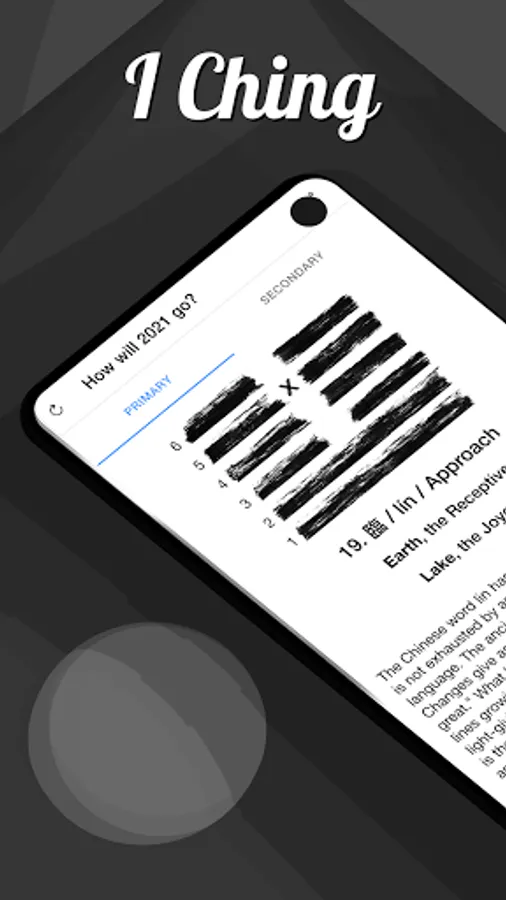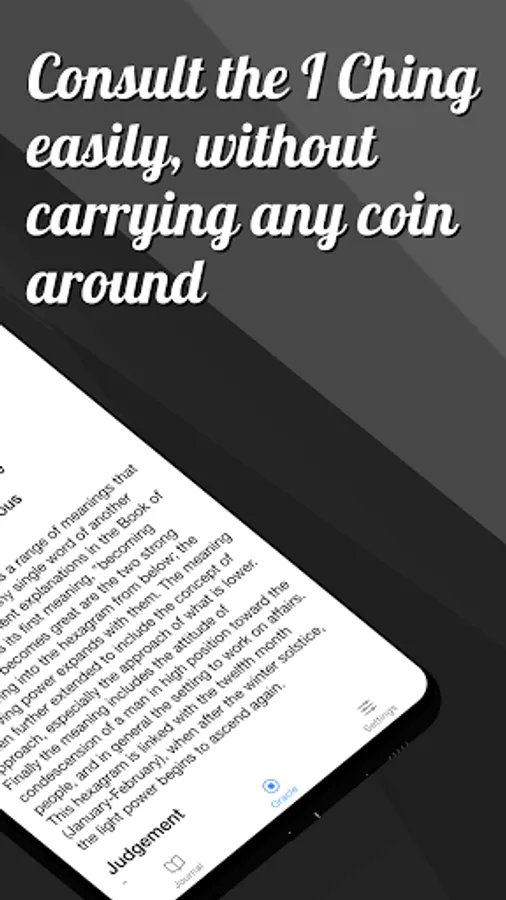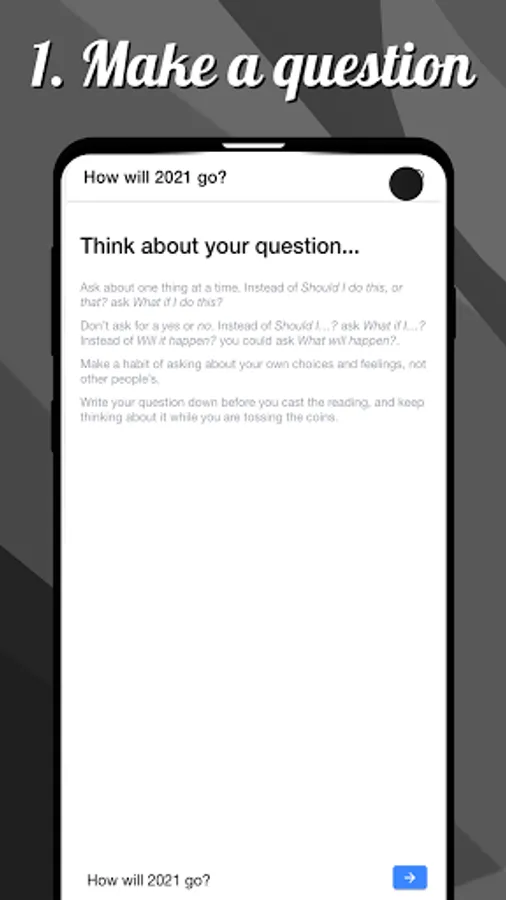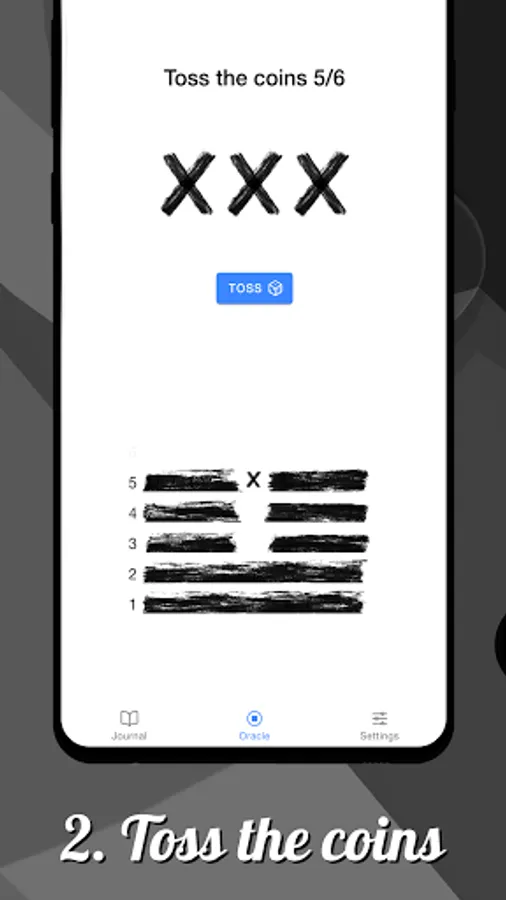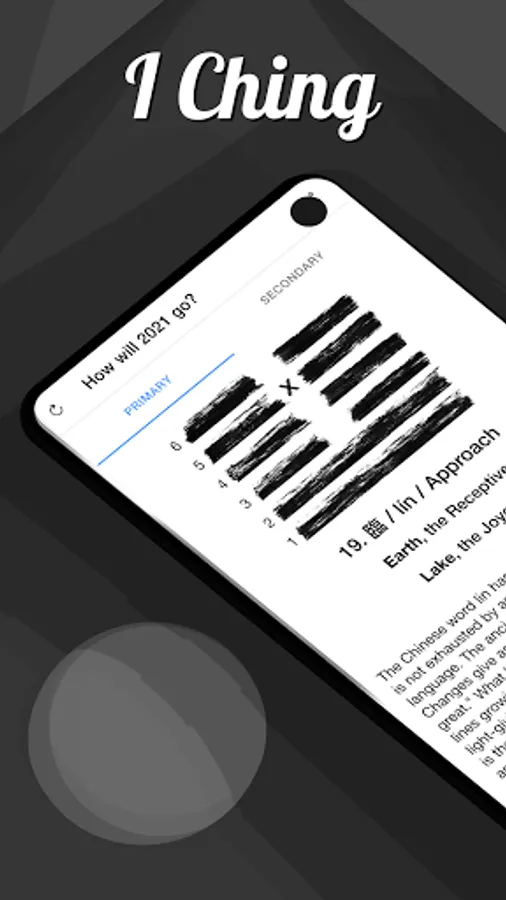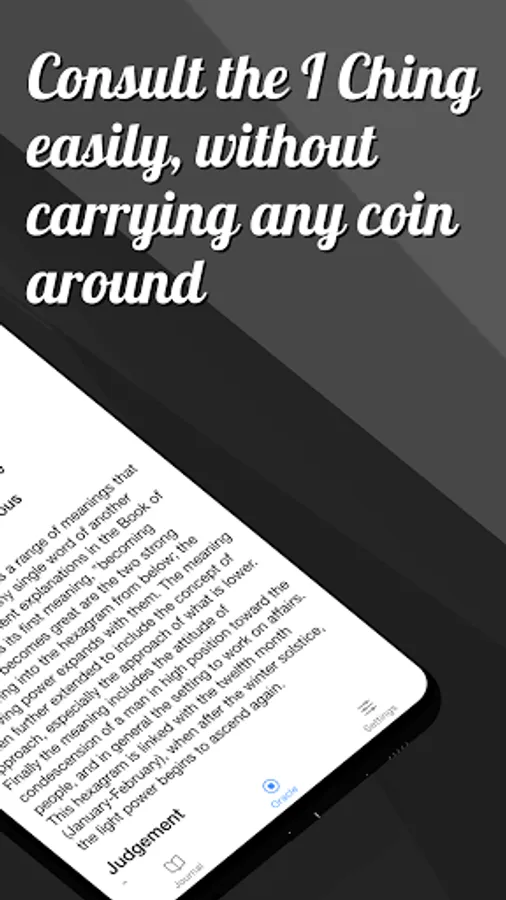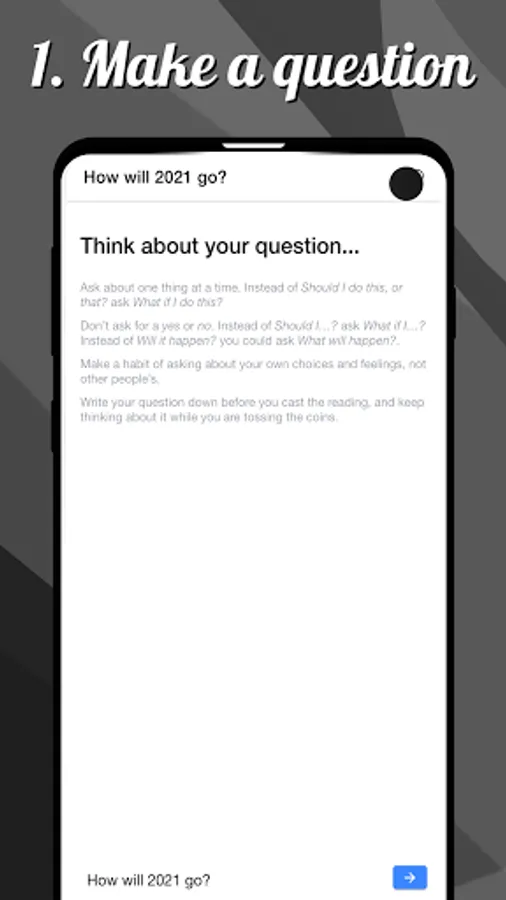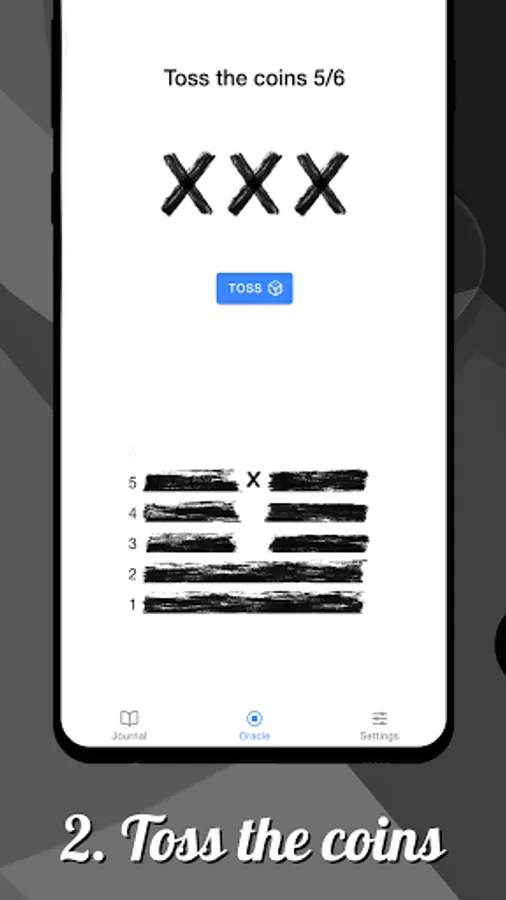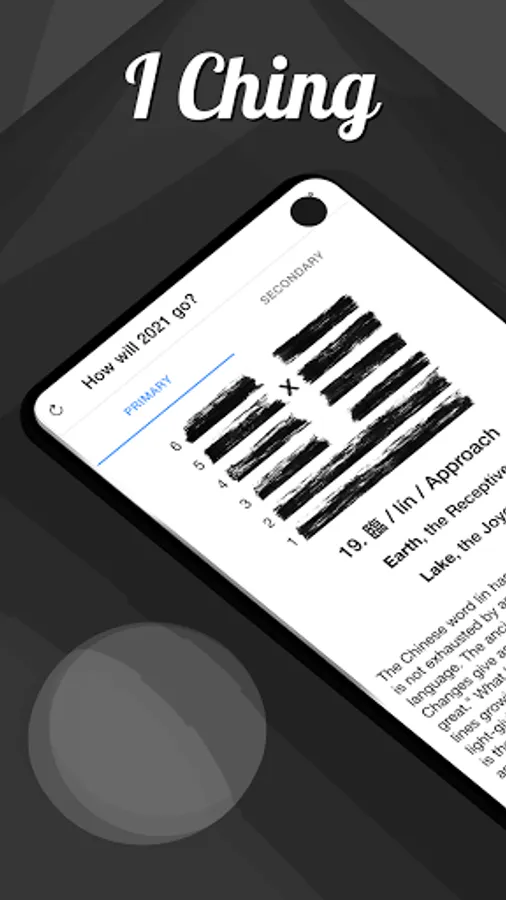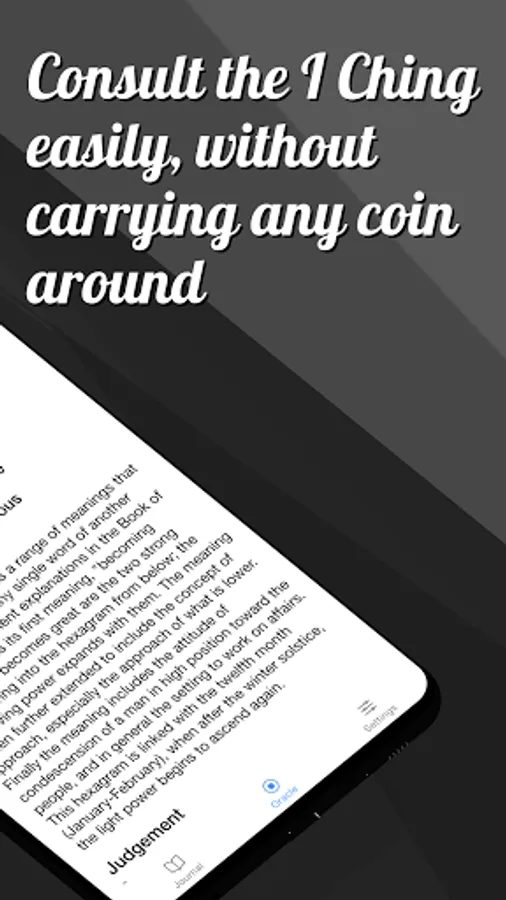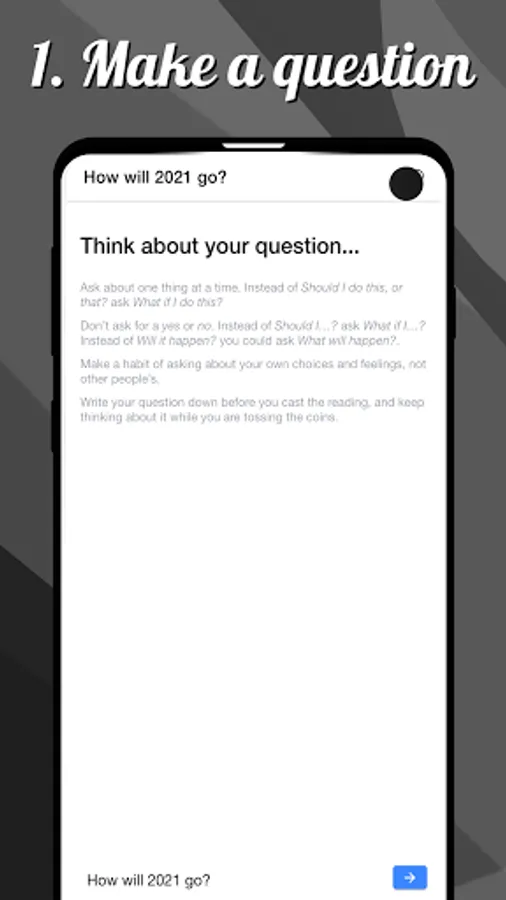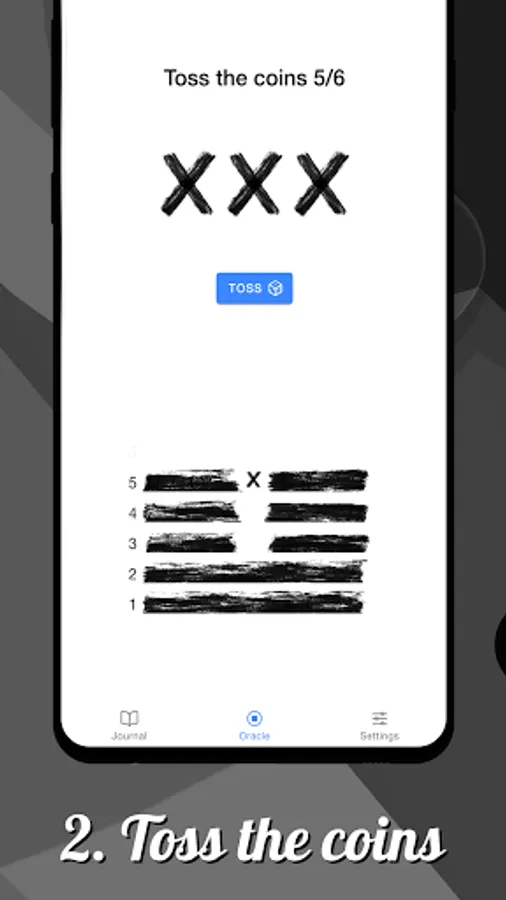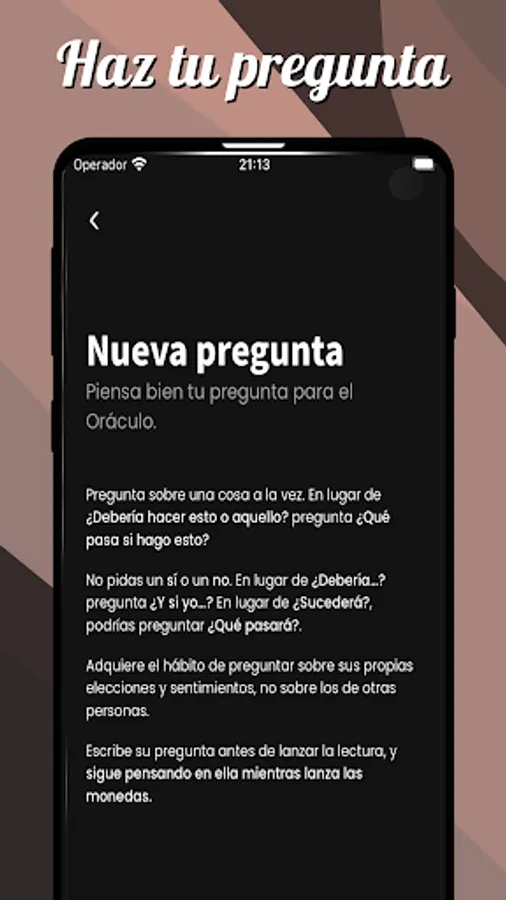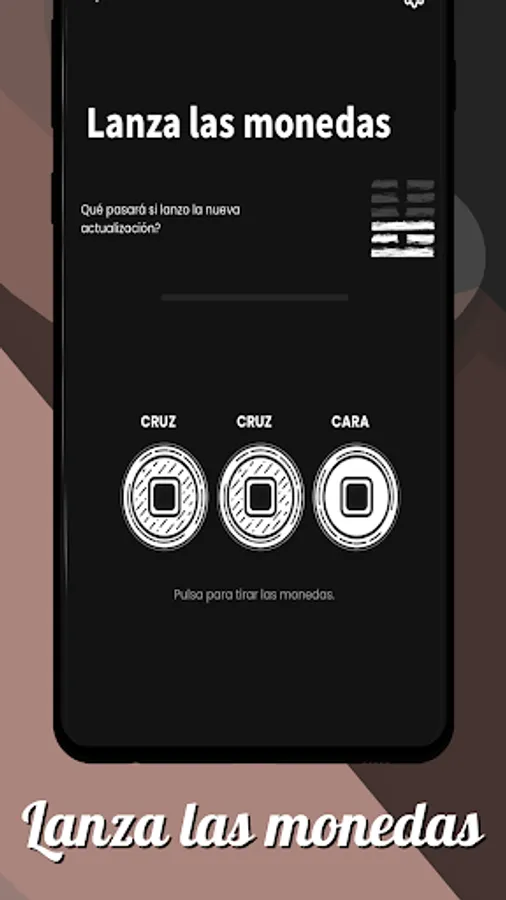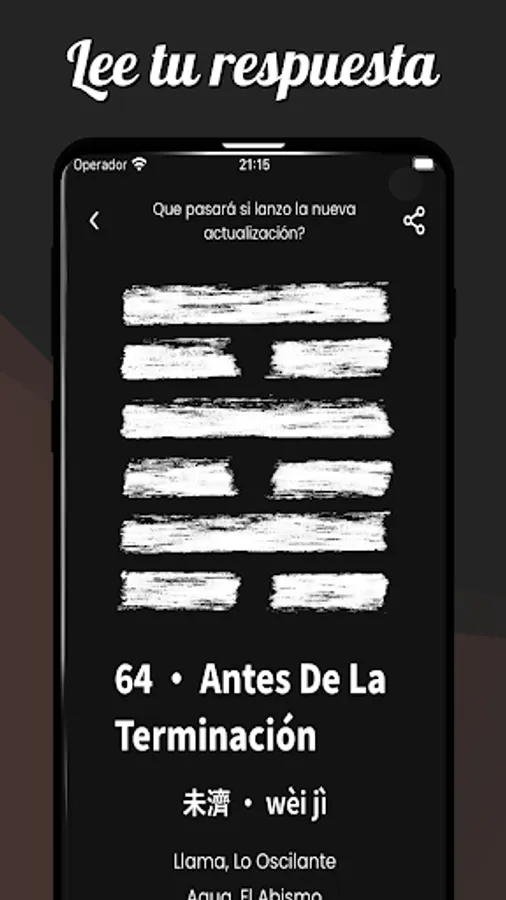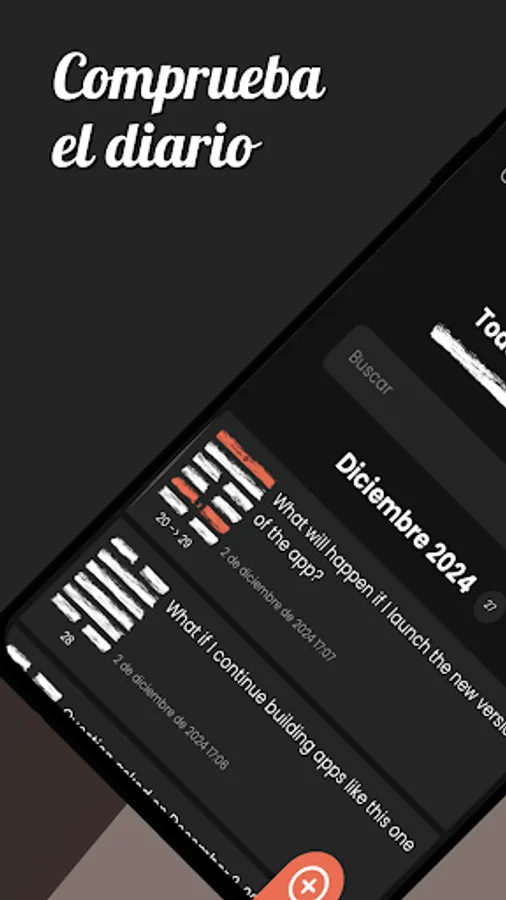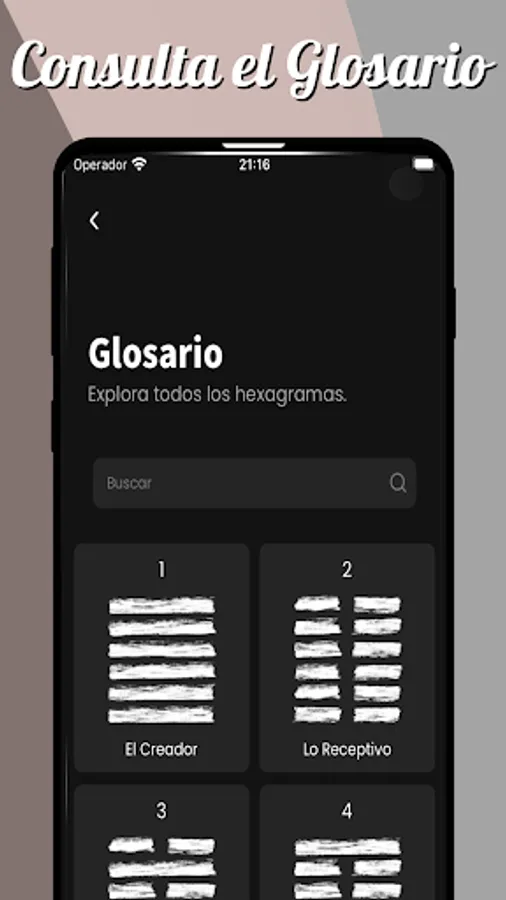I Ching: Book of Changes
codeserk.es
4.8 ★
2K ratings
10,000+
downloads
Free
+ in-app
In this app, you can perform I Ching readings by tossing virtual or real coins and view detailed interpretations. Includes a journal for tracking entries and a glossary of hexagrams.
AppRecs review analysis
AppRecs rating 4.4. Trustworthiness 73 out of 100. Review manipulation risk 24 out of 100. Based on a review sample analyzed.
★★★★☆
4.4
AppRecs Rating
Ratings breakdown
5 star
89%
4 star
7%
3 star
2%
2 star
0%
1 star
2%
What to know
✓
Low review manipulation risk
24% review manipulation risk
✓
Credible reviews
73% trustworthiness score from analyzed reviews
✓
High user satisfaction
89% of sampled ratings are 5 stars
About I Ching: Book of Changes
Easily Consult the I Ching – No Coins Needed
Let the ancient wisdom of the Book of Changes surprise you with precise and insightful answers. Completely FREE, with no ads or distractions! ☯
Key Features
🔮 Three Ways to Toss the Coins:
Choose how to perform your reading:
- Toss virtual coins one at a time.
- Toss all coins simultaneously.
- Use real coins and manually input the results.
📒 Your Personal Journal
Track all your readings and results in an easy-to-use journal. Add notes, organize entries with tags, and rate each reading based on how helpful it was.
📚 Explore the Hexagram Glossary
Access detailed meanings for all 64 I-Ching hexagrams. Deepen your understanding and apply this wisdom to your readings.
⚙️ Customize Your Experience
Decide what information you want to see in your results, such as trigrams, quotes, and descriptions.
----
What is the I Ching?
The I Ching, or Book of Changes, is a millennia-old Chinese oracle that helps you understand your present and guides you on how to act to shape your future. Passed down through generations, it offers profound insights into the ever-changing nature of life.
How It Works
1️⃣ Focus on a clear and honest question.
2️⃣ Toss the coins.
The outcome depends on the exact moment you toss them, as you influence the result.
3️⃣ Discover your hexagram.
Receive a detailed interpretation combining philosophy, symbolism, and practical wisdom.
Multilingual and Hassle-Free
🌍 Available in English and Spanish.
🚫 No ads, no hidden costs.
Download now and begin your journey with the I Ching. Free forever. 🌟
Let the ancient wisdom of the Book of Changes surprise you with precise and insightful answers. Completely FREE, with no ads or distractions! ☯
Key Features
🔮 Three Ways to Toss the Coins:
Choose how to perform your reading:
- Toss virtual coins one at a time.
- Toss all coins simultaneously.
- Use real coins and manually input the results.
📒 Your Personal Journal
Track all your readings and results in an easy-to-use journal. Add notes, organize entries with tags, and rate each reading based on how helpful it was.
📚 Explore the Hexagram Glossary
Access detailed meanings for all 64 I-Ching hexagrams. Deepen your understanding and apply this wisdom to your readings.
⚙️ Customize Your Experience
Decide what information you want to see in your results, such as trigrams, quotes, and descriptions.
----
What is the I Ching?
The I Ching, or Book of Changes, is a millennia-old Chinese oracle that helps you understand your present and guides you on how to act to shape your future. Passed down through generations, it offers profound insights into the ever-changing nature of life.
How It Works
1️⃣ Focus on a clear and honest question.
2️⃣ Toss the coins.
The outcome depends on the exact moment you toss them, as you influence the result.
3️⃣ Discover your hexagram.
Receive a detailed interpretation combining philosophy, symbolism, and practical wisdom.
Multilingual and Hassle-Free
🌍 Available in English and Spanish.
🚫 No ads, no hidden costs.
Download now and begin your journey with the I Ching. Free forever. 🌟
